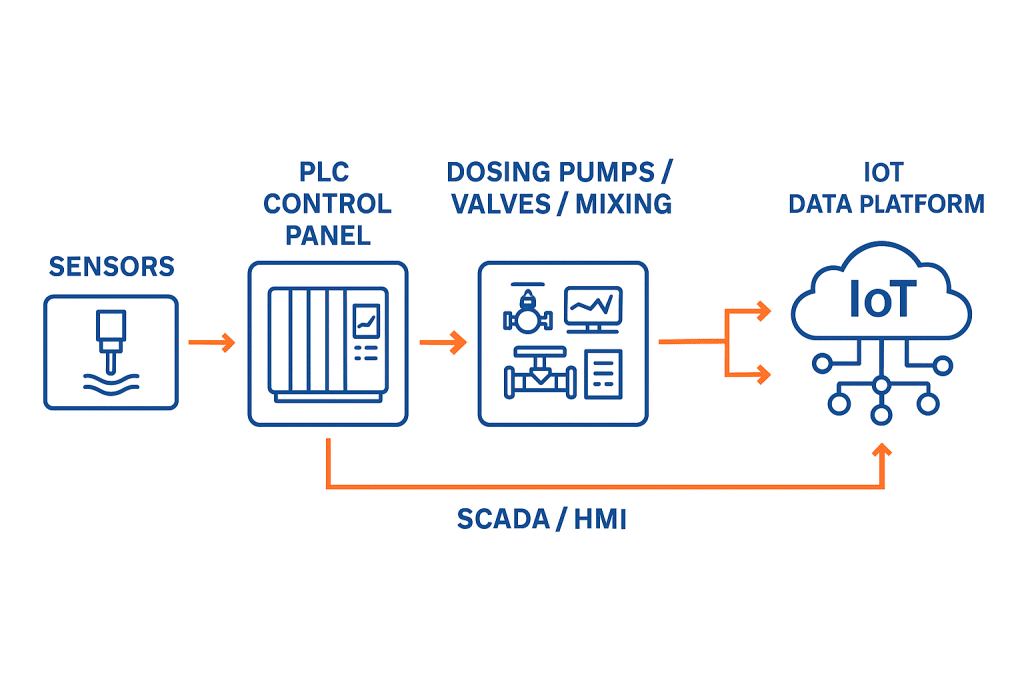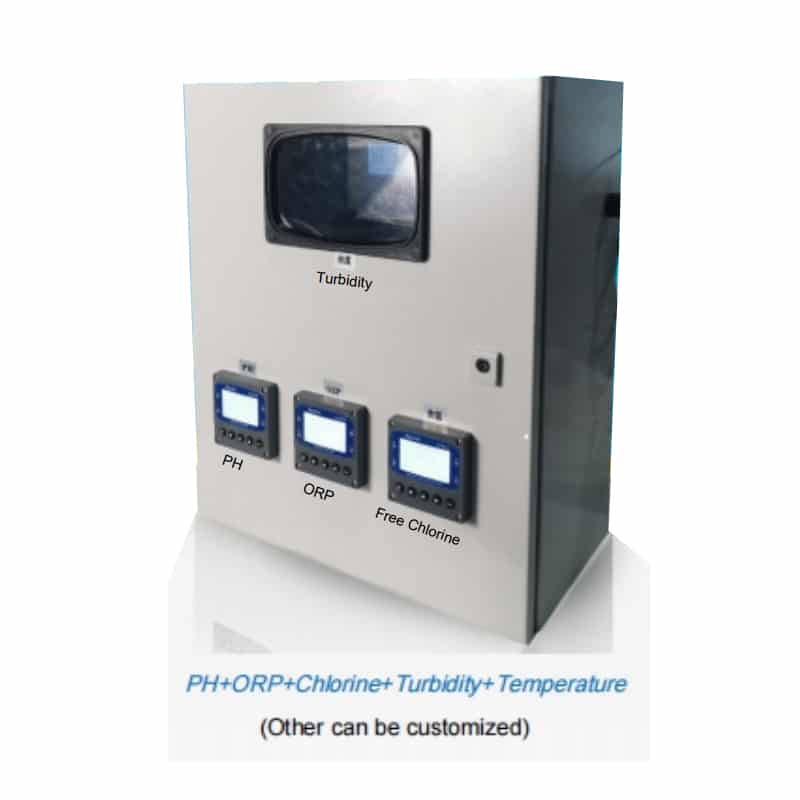In today’s rapidly evolving industrial landscape, process control and automation have become essential for improving efficiency, consistency, and safety across nearly every sector — from water treatment and chemical production to energy management and smart manufacturing. By integrating real-time monitoring, intelligent decision-making, and automatic actuation, businesses can reduce human error, optimize resource usage, and respond quickly to changing conditions. But what exactly is process control, how does automation fit into it, and why is it more critical now than ever before?
What Is Process Control and Automation?
Process control refers to the automatic adjustment of key parameters (e.g., temperature, flow rate, pH, conductivity, pressure, etc.) in a particular continuous or discrete production process by means of a control system to maintain stable, safe and efficient operation of the process.
Process Control
- Control of key parameters such as pH, residual chlorine, conductivity, ORP, etc.
- Closed-loop feedback is realized by applying PID controllers, regulating valves, and variable-frequency pumps.
Automation
- The system can automatically sample, analyze, record, alarm, and linkage dosing.
- Common components: Sensor + PLC + HMI + Cloud platform/SCADA.

Relationship Between The Two
| Process Control | Automation |
|---|---|
| Focuses on maintaining stability of variables, e.g., keeping temperature at 80°C | Focuses on executing processes automatically, e.g., shutting down system when temperature exceeds limit |
| Emphasizes precision in parameter regulation | Emphasizes automated execution and system coordination |
| Acts as the logic core within a control loop | Acts as the overall system orchestrator across the process |
Table Of Relationship Between The Two
Typical Application Scenarios
Industrial Wastewater Treatment Systems
- Continuous monitoring of effluent COD/pH.
- The system can realize unattended automatic backwashing, dosing, and adjustment.
Swimming Pool Automatic Dosing System
- Real-time detection of residual chlorine + pH → automatic starting and stopping of the dosing pump.
- Intelligent alarm to prevent chlorine exceeding the standard or coagulant overdose.
Online Monitoring Stations for Environmental Watersheds (e.g., SPI systems)
- Buoy Sampling + Solar Powered + Remote Communications.
- Hourly upload of water quality data to municipal regulatory centers.
How Does Apure Empower Water Quality Automation?
As a manufacturer of specialized water quality analysis and control equipment, Apure offers complete process control and automation solutions, including:
- Highly accurate pH/ORP/conductivity/residual chlorine sensors.
- Multi-parameter controllers (e.g. A10/A20 series).
- Intelligent integrated control cabinet (e.g. KS-600).
- SCADA/HMI interface support to realize local and remote control linkage.
- The whole set of products supports RS485/4-20mA communication, which is easy to be embedded into the existing system.


Why Automate Water Treatment Processes?
The automation system can realize 24-hour real-time monitoring of water quality parameters to ensure that the water continues to meet the standards, and can automatically adwjust the dosage, valve opening, pump speed, etc. according to the changes in water quality, to avoid overdosing or wasting resources, and to realize energy saving and stable operation.
Summary
In today’s world of increasingly intelligent water quality management, process control and automation not only improve operational efficiency, but also lay the foundation for a safe, green and sustainable water environment. Choosing the right equipment and system architecture is a critical step towards quality water treatment.
As a professional manufacturer of water quality monitoring and process control solutions, Apure is committed to deeply integrating sensing technology, automation control, and intelligent platforms to help clients optimize the entire process — from real-time monitoring to precise regulation.
We offer not only high-precision sensors and controllers, but also a full range of key instruments including flow meters, level measurement, temperature measurement, and ozone generators, enabling comprehensive system solutions.
At Apure, we believe that behind every accurate data point lies a firm commitment to water quality and safety.
Feel free to contact us — let automation understand water better, and let decisions be more informed.
